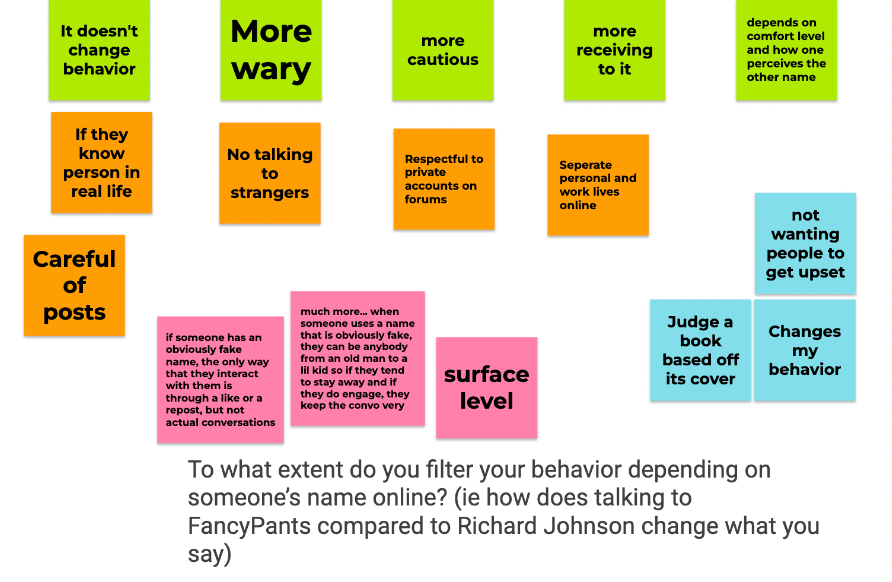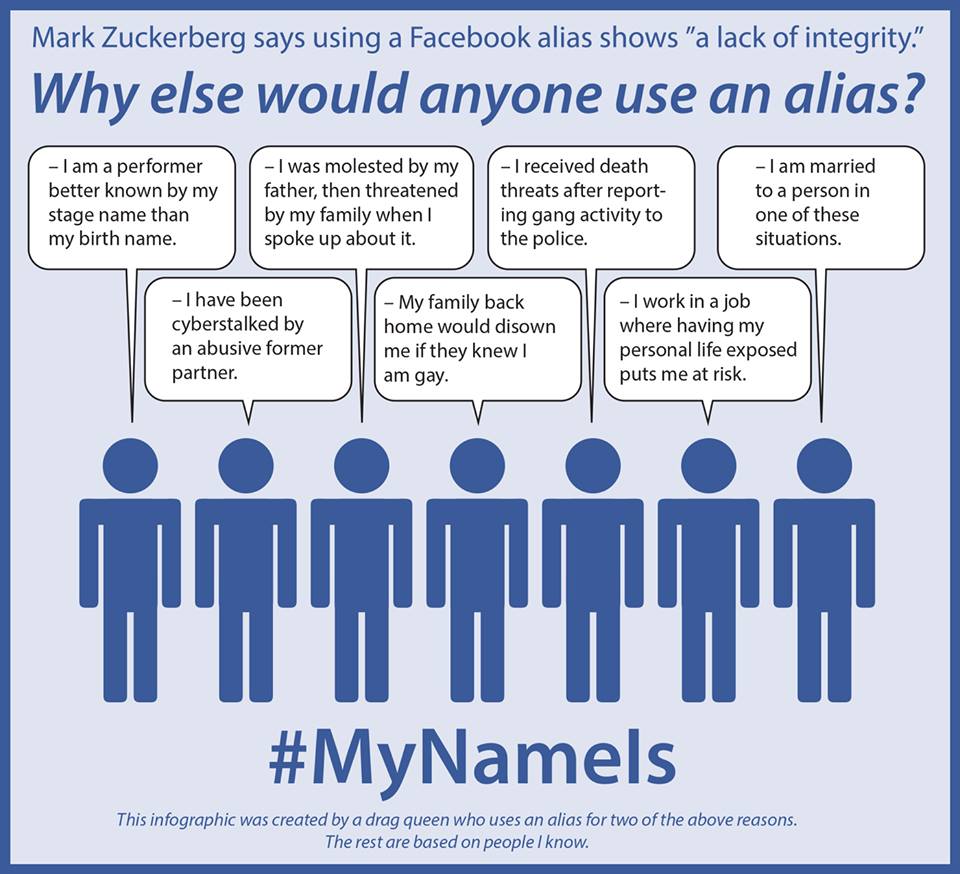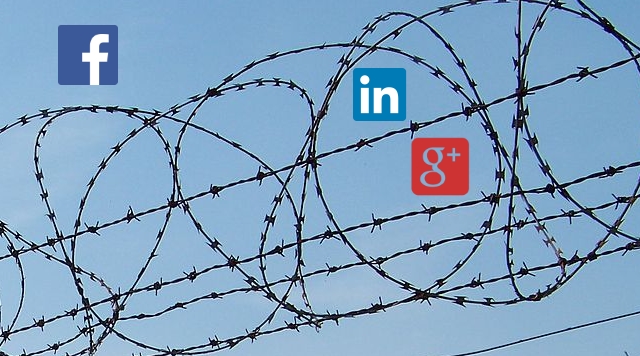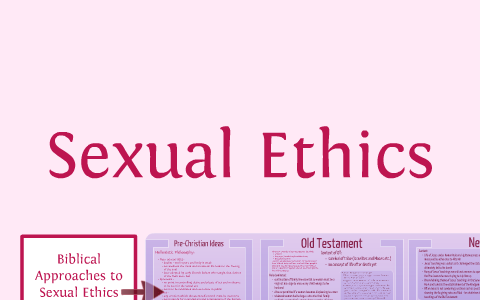A few weeks ago, the intertubes went abuzz with Facebook CEO Mark Zuckerberg’s latest case of foot-in-mouth disease. Here’s the now-infamous quote [source]:
Having two identities for yourself is an example of a lack of integrity
Alongside this, Facebook tightened the enforcement of its real names policy. They’ve since reversed their policy and apologised, as did Google+ a few months ago. ADDED: Apparently Facebook are still enforcing the policy.
During the period of enforcement, if your name didn’t appear to be genuine enough to a Facebook quality control auditor, your account may be suspended until you can prove who you say you are. This is in the name of preventing harassment, making people “accountable” and so on. There have even been third parties finding “infringers” so people can report this. All pretty vile stuff.
Despite Facebook’s reversal of policy, it’s really important to be aware of the issues. There are lots of reasons against real names policies but they can be boiled down to these: 
- The policy can’t be enforced properly meaning fake names that sound real (read: white European-sounding names) get a pass whereas real but “unusual” names (read: names from cultures the auditors aren’t familiar with) get flagged as fake.
- Because of this, harassers and people who want to use Facebook to do bad stuff will be able to circumvent the policy.
- The policy would only deter harassers if the accounts under their “real” names were banned for harassment. However, Facebook’s processes for flagging harassment are super-broken (eg. Facebook thought these comments on my timeline were ok). So in all likelihood people will still harass under their “real” name.
- Focusing on legal names means privileging people who are “in favour” of the legal system, in other words supporting (say) cis people over trans people, women who have/are changing their names from marriage/divorce etc.
- There are perfectly good reasons to use a “fake” name and by disallowing this, Facebook is directly attacking marginalised people and making their lives worse.
That’s the summary, plenty of people have laid out the details better than I could have so here are four resources.
Resource 1: this infographic on Facebook

Resource 2: this post by Heina Dadhaboy
In the past, I have used two fake versions of my name on Facebook to throw my gossip-hungry relatives off the trail. At the time, when people in my family and community were getting off on finding “dirt” about me and telling my parents about it, having the option of being less easy to find was very helpful. I didn’t want to leave Facebook because it was the way by which I stayed in touch with friends who were sympathetic towards the struggle I endured. There are ex-Muslims in worse situations than those in which I’ve ever been.
Resource 3: this piece
In some situations a person’s name simply cannot be legally changed.Facebook’s policy, however unintentional, implies transgender people’s names are not their real ones. Transgender people move through this world having their identities questioned at every turn: at the supermarket when the cashier calls them the wrong pronoun, at the airport when the security guard questions their gender, or on the street when people stare or whisper. I’ve heard from many transgender people that they have been asked what their “real name” is. It’s degrading.
Resource 4: this classic piece on “real names” from the time when Google+ came out on the wrong side of the issue as well
[A]s a public service, I’m going to list assumptions your systems probably make about names. All of these assumptions are wrong
-People have exactly one canonical full name.
-People have, at this point in time, one full name which they go by.
-People have exactly N names, for any value of N.
-People have last names, family names, or anything else which is shared by folks recognized as their relatives.
-People’s names are assigned at birth
-People have names
Read more (I’ve selected just 6 assumptions out of the 40 that are listed.)





0 Comments